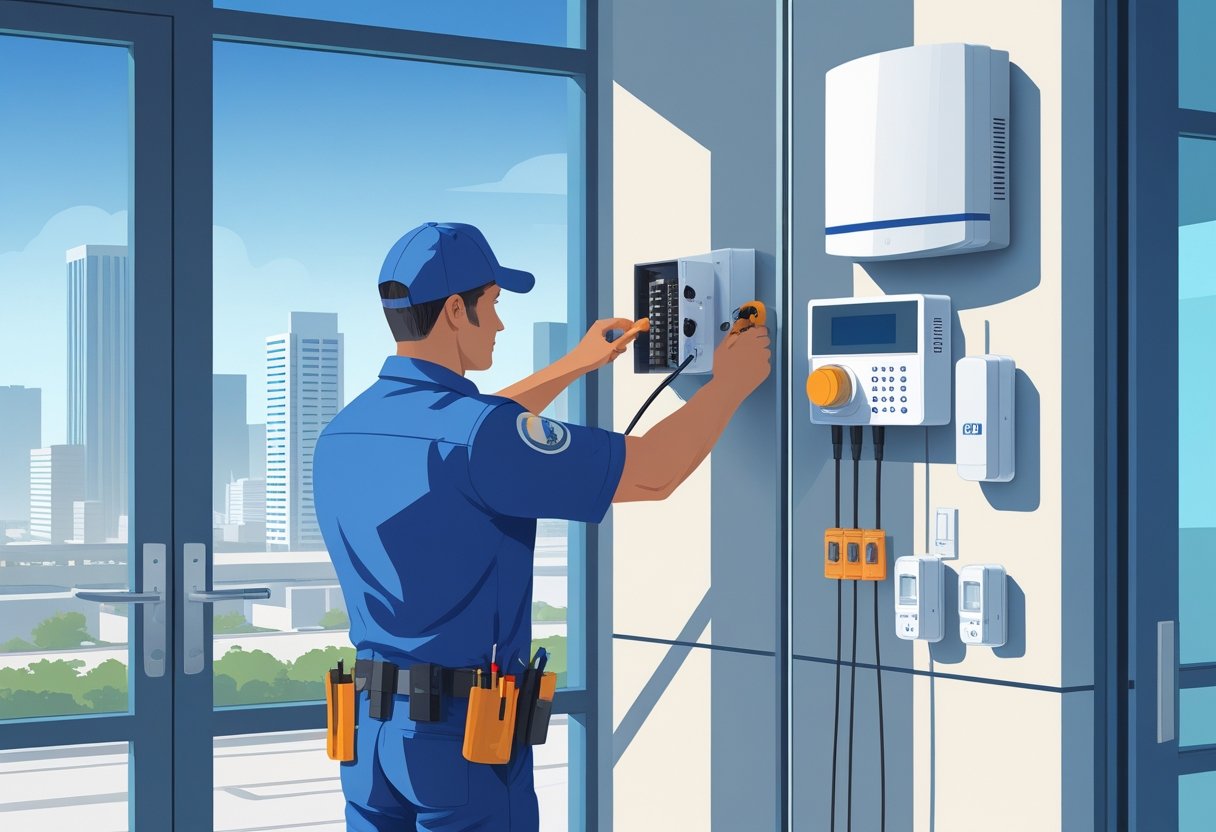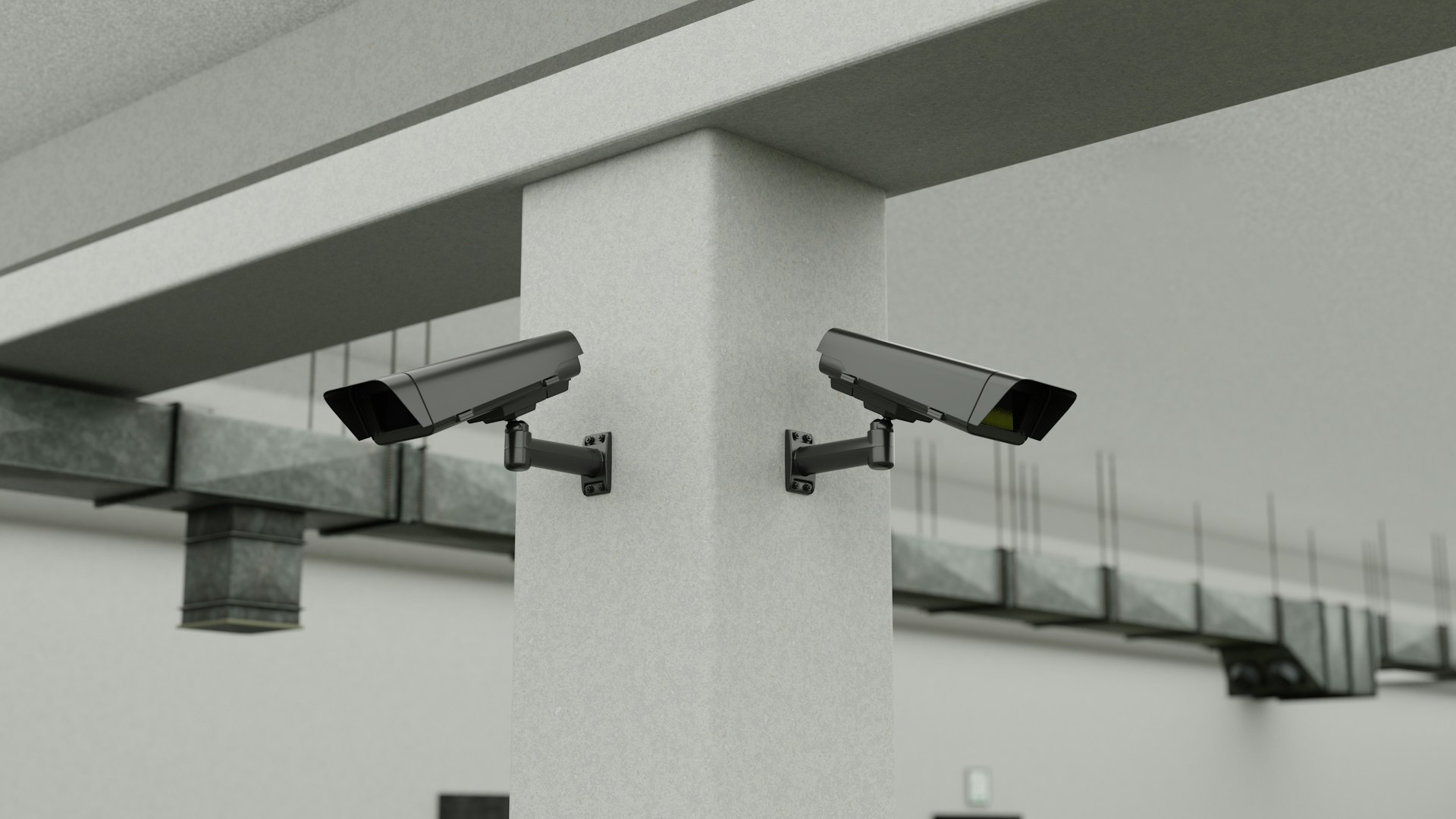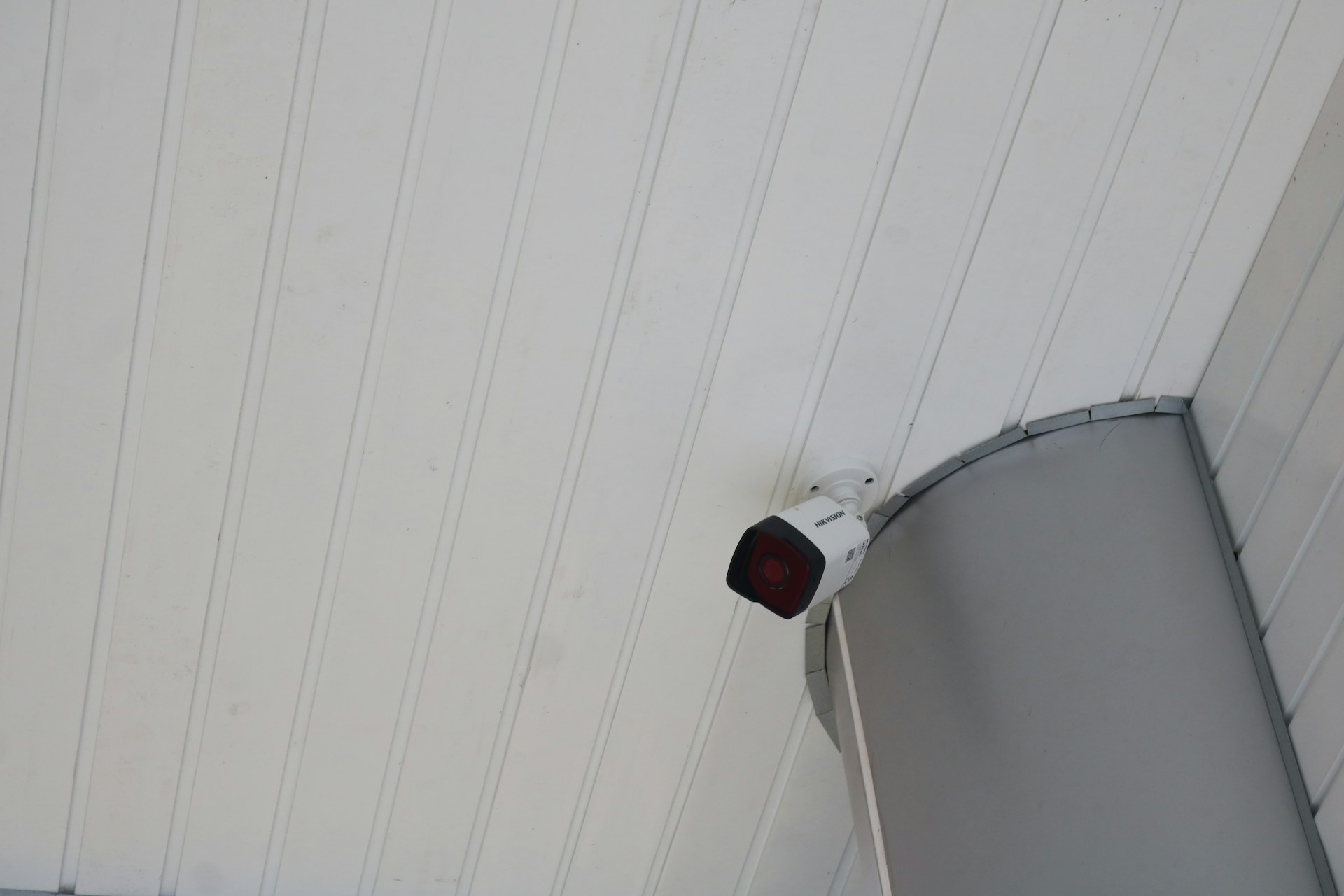When it comes to protecting your business in Houston, installing a reliable commercial alarm system should be your top priority. A well-designed alarm system not only deters intruders but also provides peace of mind, knowing your property is secure. Understanding the installation process and the options available can help you make an informed decision tailored to your specific needs.
In Houston, commercial alarm system installation services range from basic alarm setups to advanced integrated systems that include video surveillance and access control. These features are essential for monitoring activity and ensuring that you have a comprehensive security solution in place. Knowing what options are available will empower you to choose the right system that fits your budget and security requirements.
Investing in a quality alarm system is a proactive step toward safeguarding your assets. The choice of a local provider means you benefit from expertise specific to the Houston area, ensuring that your system is optimally designed and installed for local conditions. You can rest assured that with the right commercial alarm system, your business can operate safely and securely.
Overview of Commercial Alarm System Installation in Houston
Commercial alarm system installation in Houston is crucial for enhancing the security of your business property. Understanding its importance, regulatory requirements, and the types of properties that benefit from these systems will ensure you make informed decisions.
Importance of Commercial Alarm Systems
A robust commercial alarm system serves as the first line of defense against criminal activity. It provides not only intrusion detection but also monitoring services that can alert local authorities immediately.
Investing in a professional alarm system reduces the risk of theft, vandalism, and property damage. Moreover, many insurance providers offer discounts on premiums for businesses with installed alarm systems. This can lead to significant cost savings.
Additionally, integrated systems that include video surveillance and access control can enhance your security further. This level of protection allows you to monitor your premises remotely, ensuring peace of mind even when you're not on-site.
Houston Regulatory Requirements for Alarm Installation
In Houston, businesses must comply with specific regulations regarding alarm systems. These regulations ensure a standardized approach to security, promoting responsible use and minimizing false alarms.
You are required to obtain a permit before installation. This involves submitting an application and paying a fee. Failure to acquire a permit may result in fines or penalties.
Alarm systems must also be installed by licensed professionals. This guarantees that your system meets safety standards and operates efficiently. Furthermore, regular maintenance checks are often recommended to keep systems in optimal condition, providing reliable protection.
Types of Commercial Properties Served
Various commercial properties can benefit from alarm system installations in Houston. This includes offices, retail stores, warehouses, and multi-unit residential buildings.
Each type has unique security needs. For instance, retail stores often require not only intrusion detection but also video surveillance to monitor customer activities. Warehouses typically need systems that cover larger areas and high-value stock.
In addition, specialized solutions like access control systems can be tailored to suit your property's specific requirements, ensuring that only authorized personnel can enter sensitive areas. With expert installation, your business can achieve a comprehensive security solution that meets Houston's demands effectively.
Key Components of Commercial Alarm Systems
Understanding the key components of commercial alarm systems is essential for ensuring the safety and security of your premises. Each component plays a specific role in creating a comprehensive security solution tailored to your needs.
Control Panels and Keypads
The control panel acts as the brain of your alarm system. It processes signals from various components, allowing you to monitor and manage your security effectively. Keypads enable you to arm and disarm the system, enter access codes, and receive alerts.
Typically, modern control panels are equipped with features such as remote access and the ability to integrate with other smart devices. This functionality enables you to control your system even when you are not on-site.
When selecting a control panel, look for user-friendly interfaces and compatibility with additional sensors or cameras, ensuring that your security system can expand as your needs change.
Intrusion Detection Sensors
Intrusion detection sensors are critical to identifying unauthorized entry into your facility. These include motion detectors, door/window contacts, and glass break sensors.
Motion detectors utilize infrared technology to sense movement within a designated area. They can be adjusted to minimize false alarms from pets or ambient activity.
Door and window contacts trigger an alarm when opened, providing basic yet effective perimeter security.
Glass break sensors detect the sound of breaking glass, alerting you to potential intruders attempting to enter through windows.
By strategically placing these sensors throughout your property, you can create a layered security approach that enhances overall protection.
Notification Devices and Sirens
Notification devices and sirens are paramount for alerting you and law enforcement during a security breach. These devices include loud alarms, strobe lights, and mobile notifications.
Sirens serve as a deterrent against intruders. The loud noise can attract immediate attention and discourage criminal activity.
Strobe lights provide visual alerts that can be useful in settings like warehouses, where sound may not be effective.
With modern systems, you can also receive instant alerts on your mobile device, allowing you to respond swiftly, regardless of your location.
Implementing effective notification devices ensures that you can act quickly in the event of an alarm, enhancing the safety of your business.
Fire Alarm Systems Installation and Integration
When considering fire alarm systems for your commercial property, you must understand their installation and integration processes. Properly installed systems ensure safety and compliance with local regulations. Additionally, retrofitting during renovations can enhance performance and efficiency.
Fire Alarm Systems for Commercial Properties
Fire alarm systems are vital for protecting your business from fire hazards. In Houston, these systems can be tailored to meet the specific needs of various commercial properties, including offices, warehouses, and retail spaces.
You can choose from a range of systems, including conventional and intelligent options. Intelligent systems offer advanced features like real-time monitoring and alerts. Such capabilities can significantly improve your response time in emergencies.
Installation Process for Fire Alarms
The installation process for fire alarm systems in Houston typically involves several key steps. Initially, a thorough assessment of your property is conducted to identify potential fire hazards and areas requiring coverage.
Next, a certified technician will design a system that meets local regulations and your specific needs. Installation follows, with all components, including detectors, alarms, and control panels, being set up efficiently.
Finally, comprehensive testing ensures that the entire system functions correctly, providing you with peace of mind that your property is protected.
Retrofits and Upgrades During Renovations
As your commercial property undergoes renovations, considering retrofits or upgrades to your existing fire alarm system is essential. This ensures that your fire protection measures remain effective and compliant with current codes.
You may want to integrate newer technologies, such as smart alarms that connect to your mobile devices, allowing for greater control and monitoring. Retrofitting can also include relocating detectors or adding new ones to cover newly constructed areas.
It's wise to consult with a fire alarm expert in Houston to ensure these changes align with your property’s layout and safety standards.
Alarm Monitoring and Maintenance Services
Proper alarm monitoring and maintenance are critical for the security of your commercial property in Houston. These services ensure that your alarm systems function optimally, preventing theft and ensuring safety at all times.
24/7 Alarm Monitoring Options
You will benefit greatly from 24/7 alarm monitoring options that ensure your property is constantly protected. These services typically involve a professional monitoring team that receives alerts from your security system. Immediately upon receiving an alert, they can assess the situation and contact local authorities if needed.
By choosing a local provider, you can count on fast response times. Companies often offer mobile app access, allowing you to monitor your system in real time. This capability enhances your control over your security measures, even when you're away from the premises.
False Alarm Prevention Techniques
False alarms can be a significant issue for business owners. They not only cause a waste of resources but can also lead to fines from local authorities. Implementing specific techniques can help reduce the likelihood of false alarms.
Regular training for your staff on how to use the alarm system effectively is essential. Simple actions like ensuring doors and windows are securely closed before activation can prevent many false alarms. Some alarm systems incorporate user-friendly features that allow for easier disarming and activation, reducing user error.
Maintenance and System Upkeep
Regular maintenance is critical to ensure your alarm system works when you need it most. Scheduled inspections help identify potential problems before they become serious. Many providers offer maintenance contracts that ensure ongoing checks and updates.
Make sure your alarm system includes remote monitoring capabilities. This feature allows technicians to diagnose issues before arriving on-site, saving you time and money. Moreover, system updates should be a priority, as manufacturers regularly release improvements aimed at enhancing security capabilities.
Selecting a Professional Alarm System Installer in Houston
Choosing the right alarm system installer is crucial for ensuring the safety and efficiency of your security setup. Focus on specific qualifications, the advantages of local expertise, and the customization services available to ensure that your needs are met effectively.
Qualifications and Certifications to Consider
When selecting an alarm system installer in Houston, it’s essential to verify qualifications and certifications. Look for professionals who hold relevant licenses issued by the state of Texas.
Certifications from recognized organizations, such as the Electronic Security Association (ESA) or the National Institute for Certification in Engineering Technologies (NICET), indicate a commitment to industry standards and ongoing education.
Experience matters too; installers should have a proven track record in commercial security systems. Ask for references or case studies from previous projects to assess their capabilities and reliability.
Benefits of Local Expertise
Local expertise provides distinct advantages in selecting an alarm system installer. Professionals familiar with the Houston area understand the specific security challenges businesses face.
They can offer tailored solutions based on what works in your neighborhood, considering factors like crime rates and environmental conditions. Being locally based often means quicker response times for installations and ongoing support.
Additionally, local companies contribute to the community, creating trust and relationships that can enhance your experience as a client.
Consultation and Customization Services
Effective communication is vital when working with an alarm system installer. Look for companies that offer detailed consultations to understand your unique security requirements.
Customization services ensure that the alarm system meets your specific needs, rather than settling for a one-size-fits-all approach.
Inquire about service offerings, such as integration with existing systems and bespoke monitoring solutions. A reliable installer should engage with you throughout the process, providing insights and recommendations that align with your operational goals.
Frequently Asked Questions
When considering a commercial alarm system installation, several important factors come into play. Understanding these can help you make informed decisions regarding pricing, suitable systems for your business, and maintenance requirements.
What factors determine the pricing of commercial alarm systems?
The pricing of commercial alarm systems is influenced by factors such as the size of your property, the complexity of the system, and the specific features you choose. Additional elements include the type of sensors, camera systems, and whether monitoring services are included.
What are the best security systems for small businesses in Houston?
For small businesses in Houston, a blend of alarm systems with video surveillance is often recommended. Options like smart access controls and motion detectors can provide a comprehensive security solution tailored to your needs while being budget-friendly.
How do security camera installation costs vary for commercial properties?
Security camera installation costs can vary significantly based on the number of cameras, their types (indoor vs. outdoor), and the complexity of the installation. Factors such as additional features like motion detection and high-definition recording can further influence costs.
What are the credentials to look for in a security company for commercial installations?
When selecting a security company for your commercial installations, consider their licensing, insurance, and experience in the field. It’s essential to check for certifications specific to commercial security systems to ensure quality service.
How does the complexity of a commercial building affect alarm system installation?
The complexity of your commercial building can greatly affect the installation process. Multi-story buildings or those with numerous entry points may require more advanced systems and a more extensive installation process, which can impact overall costs and timeframes.
What maintenance requirements should be expected for commercial alarm systems?
Regular maintenance is crucial for commercial alarm systems to ensure they operate effectively. You should expect routine inspections, battery replacements, and software updates to be part of the ongoing maintenance plan. Establishing a schedule with your provider can help prevent issues down the line.
.svg)



.svg)


.svg)



